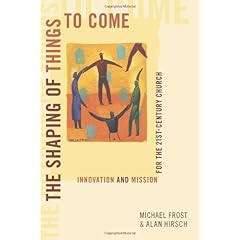I Know What I Mean, Why Don't You Know What I Mean?
Being able to communicate clearly is incredibly important, particularly in this day and age. I doubt there has ever been a time when the meanings of words have been as fluid and open to "interpretation" as they are now.
This is something we have to be incredibly aware of when trying to communicate the gospel. Not everyone understands the terms or phrases we use in the same way we do. Not everyone will even understand them at all.
Terms like, "born again", "salvation", or even "saved" have definite theological and biblical meanings but they are also jargon terms that people who have not been a part of Christian circles (and in particular evangelical Christianity) will understand very differently to those who have. Here in Australia that means a large slice of the community are not going to understand what we have to say in the way we want them to if we continue to use these terms when interacting with them.
Here's a little clip I found a while ago that highlights the issue well!
I also received the following in an email today - which is actually what got me thinking about this topic again. Great examples of simple messages being misunderstood because one person wasn't in on the jargon being used by the other.
- Tech support: What's on your monitor now, ma'am?
Customer: A teddy bear my boyfriend bought for me at K-Mart.
- A woman customer called the Canon help desk with a problem with her printer.
Tech support: Are you running it under windows?Customer: "No, my desk is next to the door, but that is a good point. The man sitting in the cubicle next to me is under a window, and his printer is working fine."
- Tech support: "Okay Colin, let's press the control and escape keys at the same time. That brings up a task list in the middle of the screen. Now type the letter "P" to bring up the Program Manager."
Customer: I don't have a "P".
Tech support: On your keyboard, Colin.
Customer: What do you mean?
Tech support: "P".....on your keyboard, Colin.Customer: I'M NOT GOING TO DO THAT!!









